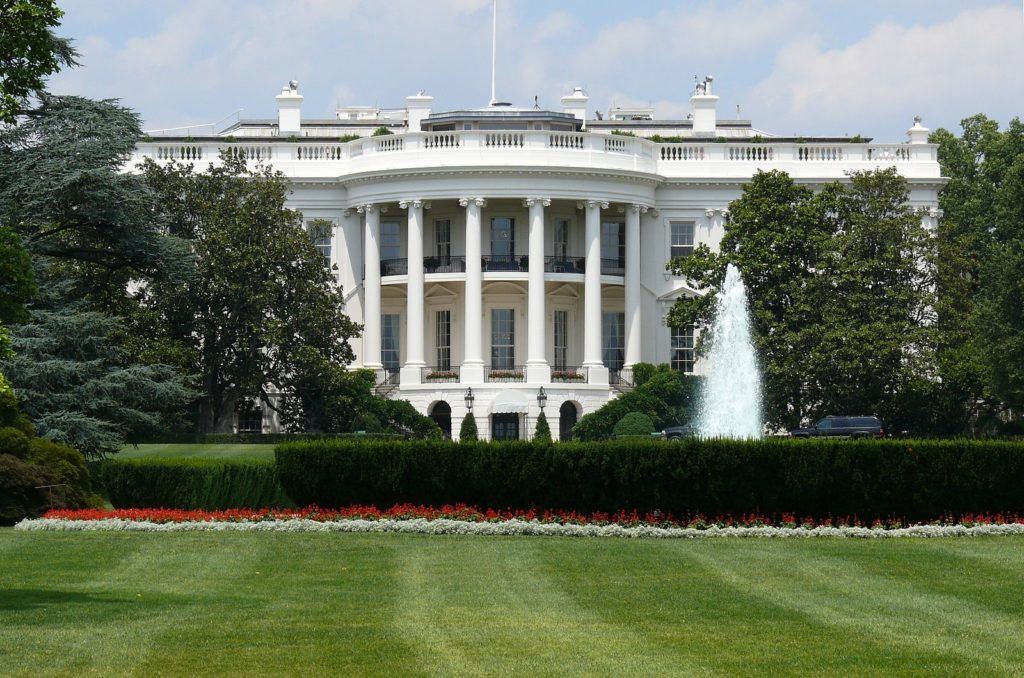
Bringing California Health Data Conversations to the Nation’s Capital
Federal policy can be one of the most significant levers for innovation and change in our healthcare system. Manifest MedEx knows this well, especially since many of our leaders have policy experience on the national level, including our CEO Claudia Williams who worked in the White House herself. So we leap at any chance to bring the perspectives of our California participants to Capitol Hill.
We were recently invited by the White House Office of American Innovation to represent the progress being made in California at the Executive Forum on Interoperability in Washington, D.C. The event was attended by a small but high-profile set of health technology leaders from across the country, including EHR vendors, large health systems, health information exchanges and national networks, government agencies, consumer advocacy groups, and other stakeholders.
Our own Erica Galvez, chief strategy officer at Manifest MedEx, said, “I think we’re turning a corner. We’ve had bright spots of interoperability in regions for a long time, but there finally seems to be real momentum to leverage and bring together national networks in a way that can scale those regional bright spots more broadly to benefit patients.”
Both the Office of the National Coordinator (ONC) and the Center for Medicare and Medicaid Services (CMS) have regulations under review with the expectation that several rules will be published early in 2019. While officials can’t share details about these new regulations, the following highlights from the forum event provide hints for what California healthcare leaders might see coming:
- CMS Administrator Seema Verma emphasized that CMS is actively taking steps via data releases and rule-making to empower patients in health decision-making and enabling research and innovation to change medical science. She highlighted CMS’s MyHealthEData initiative and Blue Button 2.0 application programming interface (API) for Medicare beneficiaries to connect their data across apps. She also emphasized CMS’s expectation that patients be able to access and use claims history to make decisions and that all providers be notified when their patients are discharged from the hospital by 2021 in alignment with the recommendations Manifest MedEx made in our comment letter to CMS earlier this year. MX Notify already delivers thousands of notifications about patient discharges to care teams across California each month, helping them prevent avoidable readmissions and improve the longevity and quality of life for patients coming out of the hospital.
- ONC National Coordinator Don Rucker indicated the ONC is doubling down on efforts to prohibit data blocking and will be releasing new guidance on the Trusted Exchange Framework and Common Agreement (TEFCA) soon. The final version of the TEFCA will likely validate and accelerate efforts to connect national networks such as eHealth Exchange, Carequality, and Commonwell. Dr. Rucker also emphasized that patients will have access to provider notes in their health records and that ONC is addressing what he calls CPT-induced note bloat (physician use of boilerplate language in notes that is not meaningful). He also highlighted ONC’s efforts to address the industry’s need for standards to support population-level data exchange, a service that MX is rolling out to network participants to support population health management in 2019.
- Department of Veterans Affairs CTO Charles Worthington also highlighted the VA’s open API pledge and the VA’s invitation for interested organizations to begin using these tools to exchange data with the VA. The VA is looking for testing partners of their current API focused on outbound clinical data and inbound patient-generated data. Their priority use cases are patient self-service access to clinical data, provider use of clinical data, and system-to-system access of clinical data. Our team is exploring ways we can get more involved in the VA’s efforts.
The organizers at this White House event called for a “data-quake” to unblock health information nationwide and transform healthcare everywhere for patients and providers. Stakeholders across California have an opportunity to lead on this health IT agenda:
- Hospitals can make admit, discharge, and transfer (ADT) feeds available to MX or other California health information networks to support discharge notifications to primary care providers and care teams that support patients post-discharge
- Providers can take steps to prepare for open note sharing with their patients
- Health information networks and technology vendors can stay engaged and aligned with national networks and engage with the VA on their production FHIR API
We at MX are proud of the work happening all across our state to help make interoperability a reality for all Californians, and we look forward to supporting our network with changes ahead in 2019. We are glad to have you joining us in “thinking locally’ about how to help improve patient care all across the country.